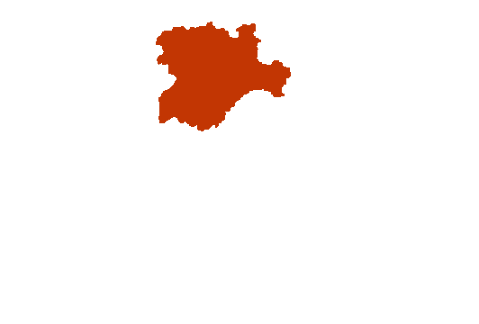Health and social care institutions
Contenido de esta página
Health and social care provision in Spain
Health and social care provision in Spain comes under the management of the autonomous communities. The exceptions are the autonomous cities of Ceuta and Melilla, where they are managed by the Institute for Older People and Social Services (Imserso), under central government.
Imserso health and social care centres
Centres for the elderly:
- Care homes
- Social welfare centres
Centres for people with disabilities:
- Care centres for people with physical disabilities
- Rehabilitation centres for people with physical disabilities
How they are regulated
The following rules apply to admissions to care homes for:
- The elderly: Decision of 26 August 1987 of the Directorate-General of the National Social Services Institute
 (Spanish Official Gazette of 1 October 1987);
(Spanish Official Gazette of 1 October 1987); - Dependent people with special needs: Law 39/2006 of 14 December 2006 promoting the personal independence and care of people in a dependent state
 (Spanish Official Gazette of 15 December 2006).
(Spanish Official Gazette of 15 December 2006).
Conditions of access to centres
The elderly
People who meet the following requirements may be eligible for admission to old people’s homes:
- Be aged at least 60;
- Have no infectious disease, chronic illness at a terminal stage or clinical disease necessitating hospital treatment;
- And have no serious mental disorders which may disrupt normal communal life in the centre.
Another requirement for admission to centres of this type is that the beneficiary must be a pensioner under the social security system or entitled, by law or international convention, to social services provided by it.
Elderly dependants and people with physical and mental disabilities
Places for elderly dependants and for people with physical and mental disabilities for which they have been referred to a specialist residential care service, or specialist day care service, are subject to the following requirements:
- Having one of the prescribed degrees of dependency;
- Having resided in Spain for 5 years, two of which must have been immediately prior to the date of submission of the application.
Users’ contributions to the cost of the service
Amounts
Users of facilities for older people generally contribute an amount towards the cost of the service. This contribution is equivalent to 75% of the basis of means testing, i.e. their total net income, apart from exceptional payments.
Users of residential care facilities for dependent people generally contribute an amount towards the cost of the service. This contribution is equivalent to 75% of the basis of means testing, i.e. their total net income, apart from exceptional payments.
The same contribution procedure as above applies to day centre users, who pay one-third of the calculated amount, as applicable.
Method of payment
Users of residential or day care pay the amount due directly to the centre providing it.
When residential stays at the centre have been paid for, the Imserso refunds the difference between the price of each place occupied and the amount payable by service users, in settlement of the cost of such stays.
Aid or subsidies
Order SSI/420/2015, of 9 March 2015 ![]() (Spanish Official Gazette of 13 March 2015), establishing the award criteria of subsidies to older, disabled and dependent people, within the scope of competence of the Institute for Older People and Social Services, provides for various types and levels of subsidy. These include care homes for older people or the disabled. Subsidies are available for temporary stays in care homes, including board, and for residence in specific cases.
(Spanish Official Gazette of 13 March 2015), establishing the award criteria of subsidies to older, disabled and dependent people, within the scope of competence of the Institute for Older People and Social Services, provides for various types and levels of subsidy. These include care homes for older people or the disabled. Subsidies are available for temporary stays in care homes, including board, and for residence in specific cases.
Rules on rates which privately managed homes may charge
There are no privately run care homes in Melilla.
In Ceuta, only the Fundación Gerón care home and day centre offers 10 private places at two rates, for single and double rooms.
Homes under Imserso management in Ceuta and Melilla
-
What types of home are available: for older people, the disabled, etc?
Melilla has the Centro Polivalente under Imserso management, offering services specifically for dependent and other elderly people. The Centro Polivalente has a total of 160 places, broken down as follows: 138 in residential care (15 for non-dependent and 123 for dependent people); 7 for temporary residence and 15 at the day centre.
In addition to its services for older people at the Centro Polivalente in Melilla, the Imserso offers permanent residential and day care places under contract with other organisations in Ceuta and Melilla, within its territorial competence. These places are intended for people who are older and/or have physical and mental disabilities, and for older people who are dependent.
The territorial directorates of Ceuta and Melilla manage two social welfare centres for older people, which basically promote community living and involvement of older people. They offer social and geriatric care, occupational therapy and other cultural and leisure services. Both centres also have day care units for older people who are dependent.
-
Centres for older people managed under contract
Centro Asistencial de Melilla care home Places: 100 (95 permanent and 5 temporary).
-
Centres managed under contract for dependent people with physical and mental disabilities and older dependent people
- Fundación Gerón care home and day centre, Ceuta· Places: 65 (55 residential and 10 at the day centre)
- ‘Nuestra Señora de Los Ángeles’ care home and day centre, Ceuta (Hermanos Franciscanos de Cruz Blanca) Places: 21 places for people with an intellectual disability, who are in a situation of dependency (on a residential basis).
- COCEMFE day centre, Ceuta Places: 15.
-
Care centres for people with physical disabilities (CAMF centres)
These are governed by the Imserso Directorate-General decision of 26 August 1987  (Spanish Official Gazette of 1 October 1987), establishing the criteria for admission, transfers, exchanges and payment for stays.
(Spanish Official Gazette of 1 October 1987), establishing the criteria for admission, transfers, exchanges and payment for stays.
Conditions of admission:
- Be aged over 16;
- Be affected by a physical impairment which needs care from another person for basic activities of daily living (BADL);
- Have no reasonable opportunities for returning to work;
- Face serious difficulties being cared for in a family or at home;
- Have no serious mental disorders which might deteriorate;
- Have no infectious disease and not need continuous care from healthcare institutions;
- Be in receipt of benefits under the social security system or entitled, by law or international agreement, to social services.
The cost of boarding places is 75% of their pension.
-
Rehabilitation centres for people with physical disabilities (CRMF)
CRMF centres are governed by the Imserso Directorate-General decision of 18 January 1993  (Spanish Official Gazette of 23 April 1993).
(Spanish Official Gazette of 23 April 1993).
Conditions of admission:
- Be in receipt of social security benefit;
- Be recognised as having a degree of disability greater than or equal to 33%;
- Be at least 16 years old though, exceptionally, if the education pathway requires it, be aged ...
- Have no infectious disease and not need continuous hospital care;
- Have no serious mental disorder which might disrupt ordinary communal life at the centre;
- In the opinion of the assessment team, show reasonable potential to return to work;
- And possess the level of knowledge necessary for the education they want to complete.
CRMFs are funded by IMSERSO and the European Social Fund. Residential stays and day centre attendance are free to the beneficiary.
What types of home are available: for older people, the disabled, etc?
Melilla has the Centro Polivalente under Imserso management, offering services specifically for dependent and other elderly people. The Centro Polivalente has a total of 160 places, broken down as follows: 138 in residential care (15 for non-dependent and 123 for dependent people); 7 for temporary residence and 15 at the day centre.
In addition to its services for older people at the Centro Polivalente in Melilla, the Imserso offers permanent residential and day care places under contract with other organisations in Ceuta and Melilla, within its territorial competence. These places are intended for people who are older and/or have physical and mental disabilities, and for older people who are dependent.
The territorial directorates of Ceuta and Melilla manage two social welfare centres for older people, which basically promote community living and involvement of older people. They offer social and geriatric care, occupational therapy and other cultural and leisure services. Both centres also have day care units for older people who are dependent.
Centres for older people managed under contract
Centro Asistencial de Melilla care home Places: 100 (95 permanent and 5 temporary).
Centres managed under contract for dependent people with physical and mental disabilities and older dependent people
- Fundación Gerón care home and day centre, Ceuta· Places: 65 (55 residential and 10 at the day centre)
- ‘Nuestra Señora de Los Ángeles’ care home and day centre, Ceuta (Hermanos Franciscanos de Cruz Blanca) Places: 21 places for people with an intellectual disability, who are in a situation of dependency (on a residential basis).
- COCEMFE day centre, Ceuta Places: 15.
Care centres for people with physical disabilities (CAMF centres)
These are governed by the Imserso Directorate-General decision of 26 August 1987 ![]() (Spanish Official Gazette of 1 October 1987), establishing the criteria for admission, transfers, exchanges and payment for stays.
(Spanish Official Gazette of 1 October 1987), establishing the criteria for admission, transfers, exchanges and payment for stays.
Conditions of admission:
- Be aged over 16;
- Be affected by a physical impairment which needs care from another person for basic activities of daily living (BADL);
- Have no reasonable opportunities for returning to work;
- Face serious difficulties being cared for in a family or at home;
- Have no serious mental disorders which might deteriorate;
- Have no infectious disease and not need continuous care from healthcare institutions;
- Be in receipt of benefits under the social security system or entitled, by law or international agreement, to social services.
The cost of boarding places is 75% of their pension.
Rehabilitation centres for people with physical disabilities (CRMF)
CRMF centres are governed by the Imserso Directorate-General decision of 18 January 1993 ![]() (Spanish Official Gazette of 23 April 1993).
(Spanish Official Gazette of 23 April 1993).
Conditions of admission:
- Be in receipt of social security benefit;
- Be recognised as having a degree of disability greater than or equal to 33%;
- Be at least 16 years old though, exceptionally, if the education pathway requires it, be aged ...
- Have no infectious disease and not need continuous hospital care;
- Have no serious mental disorder which might disrupt ordinary communal life at the centre;
- In the opinion of the assessment team, show reasonable potential to return to work;
- And possess the level of knowledge necessary for the education they want to complete.
CRMFs are funded by IMSERSO and the European Social Fund. Residential stays and day centre attendance are free to the beneficiary.
What are the State Reference Centres?
The State Reference Centres (Centros de Referencia Estatal – CRE) within the System for Autonomy and Care for Dependence are financed by IMSERSO. IMSERSO provides the necessary resources for the CREs to fulfil their functions from its budget for costs and provisions.
The purpose of the CREs is to offer quality social services to meet the needs of people in a state of dependency, and their families.
The CREs are centres of expertise for the promotion and exchange of knowledge, professional training and the provision of high-grade services.
As their name suggests, the CREs operate nationwide. Their location is not a barrier to access, but promotes cohesion among Spain’s autonomous communities.
State Reference Centres in Spain
-
The CRE for People with Neurological Disorders (CREDINE, Langreo)
The CREDINE is governed by Order SSI/411/2018 (Spanish Official Gazette of 23 April 2018).
Admission requirements:
- Be recognised as being dependent or having a degree of disability greater than or equal to 33%;
- Be aged between 18 and 60, with some exceptions;
- Have no infectious disease and not need hospital treatment;
- Not be prone to behavioural changes.
- Maximum stay: 18 months.
-
The CRE for the treatment of people with rare diseases (CREER, Burgos)
The CREER exists for research, education, study and knowledge management in the field of rare diseases. It creates and disseminates good practices and offers technical advice on improving the quality of life of patients and their families.
The CREER is governed by Order SAS/2007/2009 of 20 July 2009.
Conditions of admission:
- Be in receipt of social security benefit or entitled to social services by law or international convention;
- Be aged under 65;
- Have no transmissible disease and not need continuing medical treatment in hospitals;
- Not be prone to behavioural changes which are detrimental to normal communal life.
-
The CRE for the care of people with serious disability and dependency care (San Andrés de Rabanedo, León)
The CRE was created and is governed by Order TAS/3460/2007.
Conditions of admission:
- Be a beneficiary of the social security system or entitled to social services by law or international convention;
- Be older than 16 and have a serious disability needing care from another person for BADL and to improve personal independence;
- Be medically stable;
- And have minimum capability for communal living within the centre.
-
The CRE for the care of people with Alzheimer’s Disease and other forms of dementia (Salamanca)
This CRE is designed as a specialist centre for advanced health and social welfare. It engages in research, analysis, assessment and training to develop the knowledge of Alzheimer’s and other forms of dementia, and the care and treatment of patients and their families.
It is governed by Order TAS/3775/2007, of 19 December 2007.
Conditions of admission:
- Be a beneficiary of the social security system or entitled, by law or international convention, to social services.
- People with dementia: Alzheimer’s, vascular and other diseases in the early or late stages, except people with mental incapacity and with a diagnosis from their health service of origin;
- No infectious disease or need for continuous medical care in healthcare institutions.
-
The CRE for psychosocial care for people with serious mental illness and their families (CREAP. Valencia)
Founded and governed by Order SSI/2416/2014 of 17 December 2014.
Admission conditions or requirements:
- Be a patient with a serious and prolonged mental disorder, confirmed by a report issued by their mental health team of origin;
- Be a beneficiary of the social security system or entitled to social services by law or international convention;
- Be recognised as having any of the degrees of dependency or a disability greater than or equal to 33%;
- Have no transmissible disease in an acute stage and no need for continuous medical treatment in hospital;
- Have no episode at the acute stage with serious changes which may disrupt normal communal living;
- Be over 18 and less than 65; older or younger ages may exceptionally be admitted, at the relevant team’s discretion.
-
State reference centre for people dependent on others (CREDEI, León)
The CREDEI was formed and is governed by Order SSI/1189/2015, of 18 June 2015.
Its purpose is to drive improvement of the quality of life of people in a state of dependency deriving from mental incapacity.
Conditions of admission:
- Be beneficiaries of the social security system or entitled to social services by law or international convention;
- Show a chronic state of dependency deriving from mental incapacity;
- Be at least 45 years old; younger ages may exceptionally be admitted, at the discretion of the competent interdisciplinary team;
- Have family or community support;
- Have no transmissible disease at an acute stage and not need continuous medical treatment in hospital;
- Have no behavioural changes which would be detrimental to normal communal living in the CRE.
-
The CRE for the health and social welfare of people in a state of dependency (CREDEF, Soria)
CREDEF was formed and is governed by Order SSI/1190/2015 of 18 June 2015.
It was founded as an advanced centre for the promotion, development and dissemination of knowledge, innovative experiments and working methods in social and healthcare and family support. It is also a highly specialised centre providing integral multidisciplinary care to people in a chronic or reversible state of dependency deriving from physical disability. It promotes their independence so that they are able to stay in their usual surroundings.
Admission requirements:
- Be a beneficiary of the social security system or entitled to social services by law or international convention;
- Show a chronic or reversible state of dependency deriving from physical disability, or a risk of such a state, in the opinion of the interdisciplinary team at the CREDEF;
- Be at least 50 years old (at the suggestion of the CREDEF interdisciplinary team, younger ages may exceptionally be admitted, from age 40, provided that their services may prove beneficial to the user);
- Have sufficient social, family or community support to ensure the ability to stay in their surroundings;
- Have no transmissible disease at an acute stage, and not need continuous medical care in hospital;
- And show no behavioural changes which would be detrimental to normal communal living in care homes.
-
The CRE for personal independence and technical aids (CEAPAT, Madrid)
The CEAPAT was founded and is governed by ministerial order of 7 April 1989.
As a reference centre, the CEAPAT offers the following forms of support:
- Analysis, systematic organisation and distribution of information and knowledge;
- Promotion of research, development and innovation in working methods and techniques;
- Professional training and cooperation in the development and application of technical standards;
- Support, advice and technical help to institutions and other resources in the sector;
The CEAPAT's aims are as follows:
- To achieve universal accessibility, both in the house and in its surroundings and spaces, to products, equipment and services;
- To instil a culture of design for all individuals;
- To facilitate digital interaction;
- To ensure the active participation and interaction of users and all staff;
- To encourage the development, knowledge and application of legal and technical standards;
- To drive R&D and innovation in the fields of accessibility, design, products and services;
- To offer information, advice, evaluation and training, and manage the knowledge in worthwhile ways;
- To participate in national and international platforms and forums and facilitate coordination between agencies.
The mission of the CEAPAT is effectively to implement the rights of disabled and older people, by full accessibility of supporting products and technologies and design to suit everyone.
-
The CRE for care of brain injuries (CEADAC, Madrid)
The CEADAC is a public social welfare and healthcare resource for the full and interdisciplinary rehabilitation of people with acquired and non-progressive brain injury.
It was founded and is governed by Order TAS/55/2002 (Spanish Official Gazette of 17 January 2002).
The CEADAC user profile is as follows:
- People who have suffered a brain injury (neither progressive nor congenital) who are not in a coma or minimally conscious state;
- Ages 16 to 60, with a recent injury, whose personal independence is limited;
- Show no behavioural changes which put other users or themselves at risk;
- No symptoms of contagious or infectious disease.
Objectives:
- To offer social and health rehabilitation programmes to people who have suffered brain injury and drive the improvement of quality of life of patients and their families;
- To provide information and technical advice on rehabilitation of an existing brain injury;
- To offer information and teach professional people about acquired brain injury;
- To promote and cooperate in research projects in the field of brain injury.
The CRE for People with Neurological Disorders (CREDINE, Langreo)
The CREDINE is governed by Order SSI/411/2018 (Spanish Official Gazette of 23 April 2018).
Admission requirements:
- Be recognised as being dependent or having a degree of disability greater than or equal to 33%;
- Be aged between 18 and 60, with some exceptions;
- Have no infectious disease and not need hospital treatment;
- Not be prone to behavioural changes.
- Maximum stay: 18 months.
The CRE for the treatment of people with rare diseases (CREER, Burgos)
The CREER exists for research, education, study and knowledge management in the field of rare diseases. It creates and disseminates good practices and offers technical advice on improving the quality of life of patients and their families.
The CREER is governed by Order SAS/2007/2009 of 20 July 2009.
Conditions of admission:
- Be in receipt of social security benefit or entitled to social services by law or international convention;
- Be aged under 65;
- Have no transmissible disease and not need continuing medical treatment in hospitals;
- Not be prone to behavioural changes which are detrimental to normal communal life.
The CRE for the care of people with serious disability and dependency care (San Andrés de Rabanedo, León)
The CRE was created and is governed by Order TAS/3460/2007.![]()
Conditions of admission:
- Be a beneficiary of the social security system or entitled to social services by law or international convention;
- Be older than 16 and have a serious disability needing care from another person for BADL and to improve personal independence;
- Be medically stable;
- And have minimum capability for communal living within the centre.
The CRE for the care of people with Alzheimer’s Disease and other forms of dementia (Salamanca)
This CRE is designed as a specialist centre for advanced health and social welfare. It engages in research, analysis, assessment and training to develop the knowledge of Alzheimer’s and other forms of dementia, and the care and treatment of patients and their families.
It is governed by Order TAS/3775/2007, of 19 December 2007.![]()
Conditions of admission:
- Be a beneficiary of the social security system or entitled, by law or international convention, to social services.
- People with dementia: Alzheimer’s, vascular and other diseases in the early or late stages, except people with mental incapacity and with a diagnosis from their health service of origin;
- No infectious disease or need for continuous medical care in healthcare institutions.
The CRE for psychosocial care for people with serious mental illness and their families (CREAP. Valencia)
Founded and governed by Order SSI/2416/2014 of 17 December 2014.
Admission conditions or requirements:
- Be a patient with a serious and prolonged mental disorder, confirmed by a report issued by their mental health team of origin;
- Be a beneficiary of the social security system or entitled to social services by law or international convention;
- Be recognised as having any of the degrees of dependency or a disability greater than or equal to 33%;
- Have no transmissible disease in an acute stage and no need for continuous medical treatment in hospital;
- Have no episode at the acute stage with serious changes which may disrupt normal communal living;
- Be over 18 and less than 65; older or younger ages may exceptionally be admitted, at the relevant team’s discretion.
State reference centre for people dependent on others (CREDEI, León)
The CREDEI was formed and is governed by Order SSI/1189/2015, of 18 June 2015.![]()
Its purpose is to drive improvement of the quality of life of people in a state of dependency deriving from mental incapacity.
Conditions of admission:
- Be beneficiaries of the social security system or entitled to social services by law or international convention;
- Show a chronic state of dependency deriving from mental incapacity;
- Be at least 45 years old; younger ages may exceptionally be admitted, at the discretion of the competent interdisciplinary team;
- Have family or community support;
- Have no transmissible disease at an acute stage and not need continuous medical treatment in hospital;
- Have no behavioural changes which would be detrimental to normal communal living in the CRE.
The CRE for the health and social welfare of people in a state of dependency (CREDEF, Soria)
CREDEF was formed and is governed by Order SSI/1190/2015 of 18 June 2015.
It was founded as an advanced centre for the promotion, development and dissemination of knowledge, innovative experiments and working methods in social and healthcare and family support. It is also a highly specialised centre providing integral multidisciplinary care to people in a chronic or reversible state of dependency deriving from physical disability. It promotes their independence so that they are able to stay in their usual surroundings.
Admission requirements:
- Be a beneficiary of the social security system or entitled to social services by law or international convention;
- Show a chronic or reversible state of dependency deriving from physical disability, or a risk of such a state, in the opinion of the interdisciplinary team at the CREDEF;
- Be at least 50 years old (at the suggestion of the CREDEF interdisciplinary team, younger ages may exceptionally be admitted, from age 40, provided that their services may prove beneficial to the user);
- Have sufficient social, family or community support to ensure the ability to stay in their surroundings;
- Have no transmissible disease at an acute stage, and not need continuous medical care in hospital;
- And show no behavioural changes which would be detrimental to normal communal living in care homes.
The CRE for personal independence and technical aids (CEAPAT, Madrid)
The CEAPAT was founded and is governed by ministerial order of 7 April 1989.![]()
As a reference centre, the CEAPAT offers the following forms of support:
- Analysis, systematic organisation and distribution of information and knowledge;
- Promotion of research, development and innovation in working methods and techniques;
- Professional training and cooperation in the development and application of technical standards;
- Support, advice and technical help to institutions and other resources in the sector;
The CEAPAT's aims are as follows:
- To achieve universal accessibility, both in the house and in its surroundings and spaces, to products, equipment and services;
- To instil a culture of design for all individuals;
- To facilitate digital interaction;
- To ensure the active participation and interaction of users and all staff;
- To encourage the development, knowledge and application of legal and technical standards;
- To drive R&D and innovation in the fields of accessibility, design, products and services;
- To offer information, advice, evaluation and training, and manage the knowledge in worthwhile ways;
- To participate in national and international platforms and forums and facilitate coordination between agencies.
The mission of the CEAPAT is effectively to implement the rights of disabled and older people, by full accessibility of supporting products and technologies and design to suit everyone.
The CRE for care of brain injuries (CEADAC, Madrid)
The CEADAC is a public social welfare and healthcare resource for the full and interdisciplinary rehabilitation of people with acquired and non-progressive brain injury.
It was founded and is governed by Order TAS/55/2002 (Spanish Official Gazette of 17 January 2002).![]()
The CEADAC user profile is as follows:
- People who have suffered a brain injury (neither progressive nor congenital) who are not in a coma or minimally conscious state;
- Ages 16 to 60, with a recent injury, whose personal independence is limited;
- Show no behavioural changes which put other users or themselves at risk;
- No symptoms of contagious or infectious disease.
Objectives:
- To offer social and health rehabilitation programmes to people who have suffered brain injury and drive the improvement of quality of life of patients and their families;
- To provide information and technical advice on rehabilitation of an existing brain injury;
- To offer information and teach professional people about acquired brain injury;
- To promote and cooperate in research projects in the field of brain injury.
Relevant Links
Information for each Autonomous Community













Andalucía Aragón Asturias, Principado de Balears, Illes Canarias Cantabria Castilla y León Castilla-La Mancha Cataluña Ciudad de Ceuta Ciudad de Melilla Comunitat Valenciana Extremadura Galicia Madrid, Comunidad de Murcia, Región de Navarra, Comunidad Foral de País Vasco Rioja, La
Legal and/or technical references
-
Decision of 26 August 1987 of the Directorate-General of the National Social Service Institute (Imserso) governing admissions, transfers, exchanges and payment for stays in residential care centres for the disabled

-
Law 39/2006 of 14 December 2006 promoting the personal independence and care of dependent people



